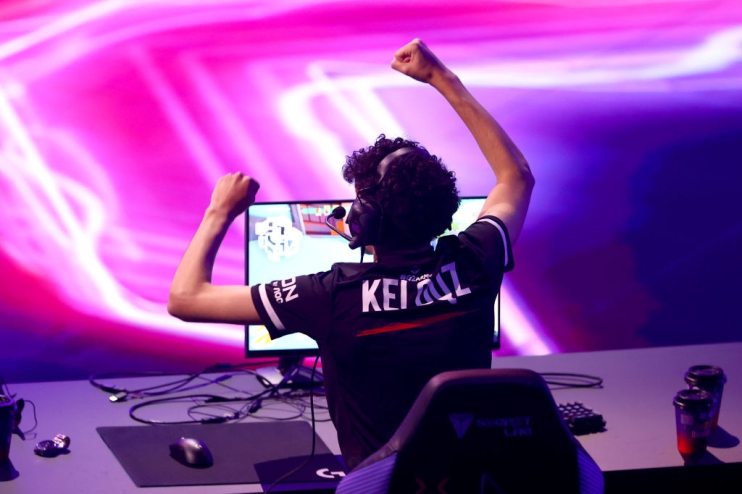No Pac-Man in Paris, but does esports really need the Olympics?

Only four years ago, esports looked destined to be included as exhibition events at the Paris 2024 Olympics, en route to full medal inclusion at Los Angeles 2028.
But the pandemic took the momentum out of their advocates’ lobbying and the success of the new sports showcased at Tokyo appears to have put paid to the Olympic e-dream.
The growth in esports has been explosive. Analysts Newzoo estimate that the industry last year had revenues of $947m from a global audience of 474m. No need for such a lucrative movement to seek the sporting legitimacy afforded by the Olympics, you’d have thought.
Coming out of the less-than-stellar Rio 2016 Games, however, it was the International Olympic Committee that was dazzled by the success of the upstart gamers.
Are esports really sports? Do they involve sufficient physicality? What of the simulated violence at the core of many of the most popular game formats? How legitimate are their competing governing bodies?
None of these was as important as the question of whether inclusion in the Olympics could provide the IOC access to the youth market that it craves.
The Asian Games of 2018, held under the IOC’s umbrella, included a number of esports as demonstration events. Next year in Hangzhou full medals will be awarded across eight games, including Fifa, League of Legends and Street Fighter V.
Given the origin and ownership of the world’s most popular esports, it is no surprise that Asia is the testing ground for this Olympic experiment.
Quite what Baron de Coubertin might think is irrelevant. After all, tug-of-war has long since disappeared from the Olympics.
IOC president Thomas Bach has publicly expressed doubts about the violence at the heart of many esports, but as a former fencer himself you’d have thought armed combat, especially only on screen, wouldn’t be any impediment. And there’s no sign of him trying to oust shooting from the current Games roster.
Bach will have been emboldened by the freshness that skateboarding, BMX freestyle, climbing, 3×3 basketball and surfing brought to Tokyo this summer. All are retained for Paris, which will also feature an Olympic debut for breakdancing.
Shortly after Rio, the Paris 2024 team said they were keen to discuss esports, but outdoor activities have since won out.
“At the end of the day, it’s about people running around in shorts in front of people having a nice beer and talking about life,” Paris 2024 chief executive Etienne Thobois said last year.
Esports’ proponents will doubtless press on with their lobbying. After all, the route for any sport to Olympic inclusion is always a torturous one. And some, notably squash, have been been plugging away with little success for many years.
The lobbyists might ask themselves again, however, whether they really need the Olympics.
Look at the success of team franchise owners such as Team Liquid or Fnatic, the revenues of the games manufacturers (which dwarf the Newzoo figure for competitive esports above), online and in-venue audiences, as well as the earnings of the superstar gamers, and it’s clear that the esports market is already well established.
True, the pandemic has sliced valuations across the industry, and it has familiar financial growth pains, but the long-term upward trajectory seems clear.
The greater goal might be a unified four-yearly esports jamboree under the movement’s own banner, not so much to rival the Olympics but to steal a sizeable bundle of its commercial dollars.
More or less cricket
By the time you read this, England’s cricketers may have decided the fate of this winter’s Ashes.
The England and Wales Cricket Board appears effectively to have put the series in the players’ hands, with Australian quarantine regulations for the team’s visiting families the key issue.
Last week the Aussie captain Tim Paine boldly declared that the Ashes were going ahead whether Joe Root was on the plane from England or not. I’m not sure he’s right.
As a fan, I hope the ECB has managed to assemble a competitive team. But after scrapping a brief trip to Pakistan for both men’s and women’s teams and now appearing to abdicate the Ashes decision, if the Australia tour does go ahead it will feel like a ‘victory’ that the ECB doesn’t deserve.
Ed Warner is chair of GB Wheelchair Rugby and writes at sportinc.substack.com
